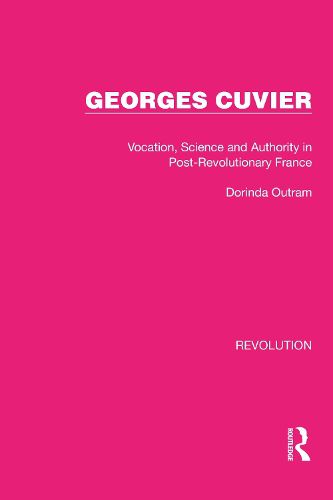Readings Newsletter
Become a Readings Member to make your shopping experience even easier.
Sign in or sign up for free!
You’re not far away from qualifying for FREE standard shipping within Australia
You’ve qualified for FREE standard shipping within Australia
The cart is loading…






This book, first published in 1984, examines the lifetime of Georges Cuvier, and in his constant and varying struggles to retain his position both as a politician and as a leading naturalist we find displayed almost all of the political tensions of Restoration France. Our understanding of the new French intellectual elite is enhanced if we can explain what sort of power this group wielded, and how it related to the structure of politics as a whole. Cuvier's career epitomises this relationship to the highest degree. Examination of the building of his career under the Directory and Empire offers many new insights into the way the expanding market for science, the restructuring of society as a whole, and the moral authority of science itself could be utilised as resources in the making of a reputation. The influence of scientific competition and controversy on Cuvier's scientific work is examined at length, and it is argued that they exerted a decisive effect on the structure of his biological and geological thinking.
$9.00 standard shipping within Australia
FREE standard shipping within Australia for orders over $100.00
Express & International shipping calculated at checkout
This book, first published in 1984, examines the lifetime of Georges Cuvier, and in his constant and varying struggles to retain his position both as a politician and as a leading naturalist we find displayed almost all of the political tensions of Restoration France. Our understanding of the new French intellectual elite is enhanced if we can explain what sort of power this group wielded, and how it related to the structure of politics as a whole. Cuvier's career epitomises this relationship to the highest degree. Examination of the building of his career under the Directory and Empire offers many new insights into the way the expanding market for science, the restructuring of society as a whole, and the moral authority of science itself could be utilised as resources in the making of a reputation. The influence of scientific competition and controversy on Cuvier's scientific work is examined at length, and it is argued that they exerted a decisive effect on the structure of his biological and geological thinking.